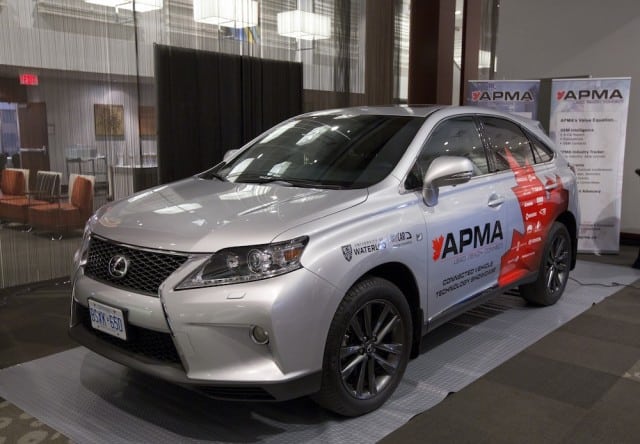 New legislation may reduce fatalities and injuries due to drunk drivers. The legislation is supported by Mothers Against Drunk Driving and sponsored by Representative Nita Lowey. The bill called Alisa’s Law is in the House of Representatives and requires the use of ignition interlock devices for a minimum of six months for all convicted drunk driving offenders. States that fail to comply would face a reduction in federal transportation funding.
New legislation may reduce fatalities and injuries due to drunk drivers. The legislation is supported by Mothers Against Drunk Driving and sponsored by Representative Nita Lowey. The bill called Alisa’s Law is in the House of Representatives and requires the use of ignition interlock devices for a minimum of six months for all convicted drunk driving offenders. States that fail to comply would face a reduction in federal transportation funding.
Alcohol ignition interlock devices stop vehicles from starting if drivers have breath alcohol concentration over a preset limit. Usually alcohol interlock devices feature a hand held breath alcohol tester and an electronic control unit that is connected to the ignition and integrated into the dash.
A connected car prototype from the Automotive Parts Manufacturers Association(APMA) in Canada has an interlock device built into the car. Because the APMA connected car uses the QNX operating system, with security features, an electronic control unit was not necessary for this ADAS feature.

Drivers blow into disposable mouthpieces on handsets, before cars can start. Sensors in the handsets analyze the breath samples and shows precise readings of the breath alcohol level, if levels are below the preset limits, the engine won’t start.
 While driving, drivers may be prompted to give additional tests to make sure that they have not had a drink since starting the engine. Alcohol interlocks never stop the engine while it is running, but do record events and violations for monitoring purposes.
While driving, drivers may be prompted to give additional tests to make sure that they have not had a drink since starting the engine. Alcohol interlocks never stop the engine while it is running, but do record events and violations for monitoring purposes.
In the APMA connected car, the alcohol measurements and driver profiles are seen and set through the infotainment unit. A parent can set levels for a teen and then get text messages or emails with a location and the alcohol level. The driver is authenticated by a a finger print scan on the head unit screen. In the future a version, a mobile app will allow the administrator to program interlock settings and see breath alcohol tests with GPS coordinates in real time. A tool that will be especially helpful for parents.
Ignition interlocks are often required by judges and legislation for driver convicted of driving while drunk.
Ignition Interlocks allow the convicted driver to continue to work and provide for his/her family, says Jake Nelson, director of traffic safety advocacy at AAA who noted that first offenders convicted of drunk driving on the average have driven 80 times drunk before getting caught.
The data from the ignition interlock devices are recorded and given to the probation office after the participant returns to the installation facility. Wi-Fi and Bluetooth models will be released in the fall by Alcohol Countermeasure Systems (ACS).
Ignition interlock devices have safeguards such as cameras to be sure it is the person who was convicted is taking the breath test and not a balloon full of air on the breathalyzer. Nelson says that court ordered devices cost around $200 to install and $3 a day to operate, less than a cost of a drink a day.
Nelson also cautioned that alcohol breath testers that connect to your phone or available on the internet are not accurate. Blood alcohol levels can get higher after an initial test is taken. Drivers who drink should not drive at all. Some parents have had alcohol interlock systems installed in family cars to prevent family members from driving while drunk.
MADD has worked with lawmakers to get stricter enforcement of drunk driving with ignition interlocks in all of the states. Some states only require installation of devices after a second offense or at the discretion of the judges. MADD supports interlocks for all drunk driving convictions. All-offender interlock laws that require ignition interlocks for all first-time convicted drunk drivers are in 24 states as well as a California pilot program.
Alisa’s Law in named to honor of MADD National President Jan Withers’ daughter, who was killed by a drunk driver when she was just 15.
If passed, it would help MADD’s Campaign to Eliminate Drunk Driving®. When the Campaign was launched in 2006, New Mexico was the only state to require all convicted drunk drivers to use an ignition interlock. The most recent count shows that over 300,000 interlocks are installed in the United States.
“In my mind, driving drunk only once is one time too many,” said Representative Lowey. Besides an enormous emotional toll, drunk driving costs taxpayers $132 billion each year.
AUTO Connected Car contacted Representative Lowey’s office to check on the status of HR 5025. It is currently in the Transportation Infrastructure committee while Congress is on summer break. Due to money spent by the alcohol beverage industry, some think that it will be difficult to get passed. Therefore it is important to write house representatives to let them know you would like tougher alcohol interlock legislation. Write to your lawmaker in support of Alisa’s Law.
The next phase after this legislation of keeping drunks from driving is in the works through DADSS Driver Alcohol Detection System for Safety a program from the Automotive Coalition for Traffic Safety and the National Highway Traffic Safety Administration to research policy challenges for more widespread use of in-vehicle technology to prevent alcohol-impaired driving. The group is considering passive forms of monitoring such as touch or breath detection.